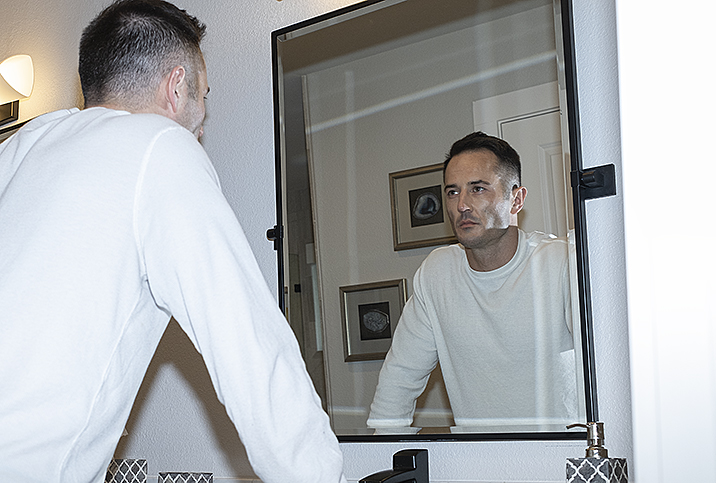Is Edging Healthy and Safe for Your Penis?

Edging isn’t just a penis thing. Anyone—regardless of what genitals they have—can increase the intensity of their orgasm by attempting to control when they come. But many are curious about the benefits of edging for the penis: Can it improve erections? Can it cure premature ejaculation? Are there even any health benefits to this orgasm trend?
If you’re unfamiliar, the technique of edging is when a penis is stimulated until the very brink of climax and—right before ejaculation—the stimulation stops. Once you’ve returned to a state of lessened or non-arousal, you start the stimulation all over again. You repeat this until you either can’t hold back any longer or you’ve consciously decided to step over the “edge” and have an orgasm.
Why edge? Lucy Rowett, a Brighton-based certified sex coach and clinical sexologist in the U.K. explained that “edging helps to retrain the body and neural pathways to tolerate more pleasurable sensations—even if that doesn't sound particularly sexy—so that either when they do orgasm, the pleasure is more intense, or they can choose when to orgasm.” If you continually bring yourself super close to coming, and then deny yourself that satisfaction, the experience of going over the edge is intensified. Your nerve endings are very sensitive, and in the sexual response cycle, your body wants to reach climax. Continuously juicing up those nerve endings builds intensity, both in a physical and psychological sense.
Edging isn’t just an erotic tool either. Not only has it been shown to give people stronger orgasms, but it can also help with premature ejaculation, erectile dysfunction and an inability to keep your head in the game during sex (aka distraction or a lack of mindfulness).
Why edging works
There haven’t been a ton of scientific studies done on edging. But Kenneth Play, a kink expert and sex hacker, said edging comes from ancient Taoist, Chinese and Tibetan practices. “These traditions use this practice to retain energy and alertness and direct it toward the goals of their tradition. Staying aroused and in the game, whether sexually, emotionally or physically, is definitely a huge benefit [to better sex],” he said.
Basically, you’re avoiding the post-sex refractory period that happens when someone ejaculates. When they pass into this phase, “their brain becomes unresponsive to sexual stimulation, so they are effectively on the bench when it comes to sex unless they are only stimulating their partner, and even then, they likely have less energy for this act,” Play explained. “By avoiding ejaculation, [people] can stay sexually responsive to their partners for longer.”
Is edging healthy? Is it safe?
Like in anything we do (whether it’s sex, sports, cooking or a new gym routine), we should examine the potential risks before jumping in. The good news? Edging is totally safe.
It helps you to train your body to control your orgasm, which allows you to get more in tune with your body overall. “Start by focusing on the pleasure in specific [ways], while trying to relax as much as you can in any muscles that you aren’t actively using,” Play explained. “When you get closer to the edge of orgasm, you’ll begin to notice yourself actively tensing up and driving toward the orgasm. Instead of focusing on the future orgasm and getting there, relax all the physical and mental tension you can.”
Edging also helps people tolerate pleasure to sustain an erection. “It's really a kind of desensitization and resensitization tool to retrain the body—in particular the sexual response—to respond differently to sexual stimuli,” Rowett said. For those dealing with ED or premature ejaculation, this kind of mind-body control can be profound.
Be sure to stay mindful and breathe throughout your practice. Check in with your body. “If you're noticing any physical pain or discomfort, stop and let yourself ejaculate,” said Play. “If you notice that during partnered sex you're so preoccupied with not coming and can't be present with your partner, you may want to re-examine why you're doing it.” Communicate with your partner about how you’re feeling. If you find that withholding a final release just isn’t for you, that’s OK, too. Not everyone’s into the idea of being an edge-master.
You must be willing to give it the time and attention it deserves for it to work. If you don’t get it right on the first, second or fiftieth try, that’s totally OK.
But if edging works for you, the finish is worth the wait.

















